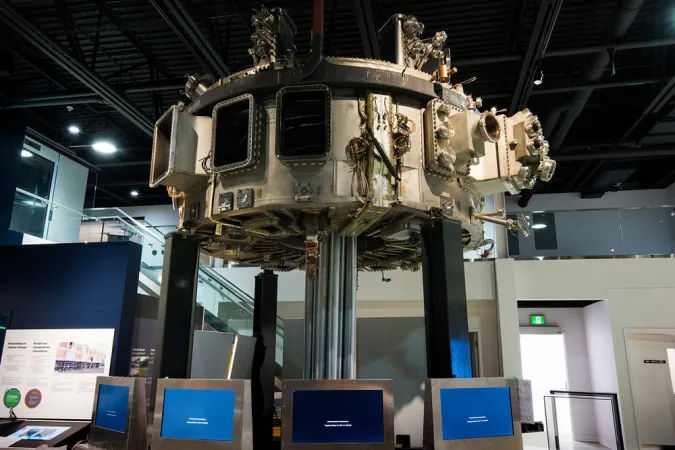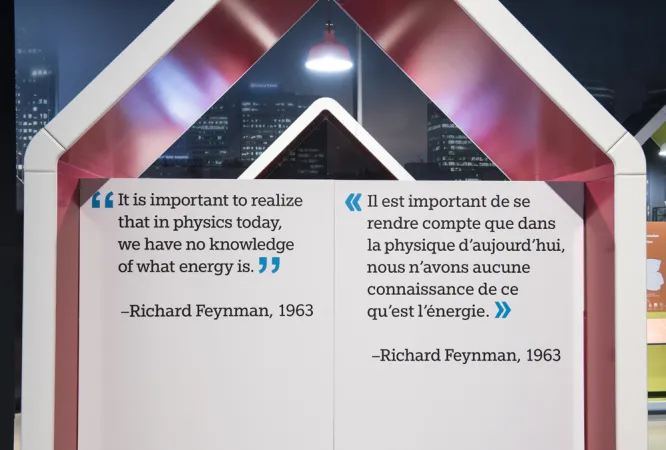
Energy is defined as the “ability to do work, which is the ability to exert a force causing displacement of an object.” Despite this confusing definition, its meaning is very simple: energy is just the force that causes things to move.
Energy is divided into two types: potential and kinetic. The best way to think about them is that potential energy occurs before an action, and kinetic energy happens during an action. Imagine you are holding your physics textbook up in the air. It has the potential to drop, just because of its high position. If you let the textbook drop, the potential energy is converted into kinetic energy – the energy in the movement itself.
How it works
Energy comes in many different forms. Some of the more familiar forms include:
- mechanical energy: the moving force behind machinery
- chemical energy: derived from anything that undergoes chemical reactions to provide us with heat or sustenance, such as wood, coal, oil, food, etc.
- muscular energy: derived from the chemical energy of the food we eat
- thermal energy: converted from heat, such as the steam in a steam engine or heat of exploding gases in a combustion engine
- light energy: some organisms, mostly plants, derive their energy from the sun in a process called photosynthesis
- electrical energy: an electric charge associated with power, magnets, and electrical currents
- nuclear energy: energy released by atoms and converted to heat, then to electrical energy
Arguably, the most important law to keep in mind when studying the transfer of energy is the Law of Conservation of Energy. Simply put, there is a finite amount of energy in the world, so none can ever be created nor destroyed. This means that when something loses energy, it cannot truly disappear; instead, it gets transferred to something else.
However, something to keep in mind is that no transfer of energy is 100 per cent efficient. Some energy will always be lost as heat and sound.
Why it matters
When considering the significance of energy, the most important question to ask is, “Which process on Earth doesn’t involve energy?” Energy is present all around us – even in us – all the time.
Energy drives every form of movement. Walking, running, and biking use chemical energy – derived from the food we eat – to fuel our muscles and keep us moving. Trains use either electrical energy, or a combination of thermal and chemical energy, generated from fossil fuels. A sailboat uses mechanical energy, as it is pushed by the wind. Just like wind energy can push a sailboat, the wind’s mechanical energy can also be converted into electrical energy using a wind turbine.
Although we have understood the many aspects of the physics of energy for a long time, humans are still trying to create better and more efficient processes to harness and use energy!
A Canadian connection
In Nova Scotia, Canada has its only operational tidal station in the Bay of Fundy. This station harnesses the mechanical power of the rising and falling tides to generate electricity. Canada is one of the only countries in the world to have expertise in this area! This technology still faces challenges in terms of economic and environmental impacts. However, if Canada can perfect it, the total wave energy – just one kilometer off of the coast – could meet more than double Canada’s current electricity demands!
Go further
Learn about renewable energy – energy that replenishes itself – here.
Learn about Canada’s energy use and production on the Natural Resources Canada website.
Head over to Let’s Talk Energy to learn more about energy!





